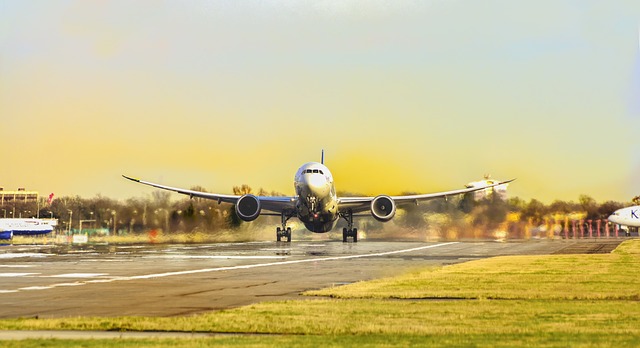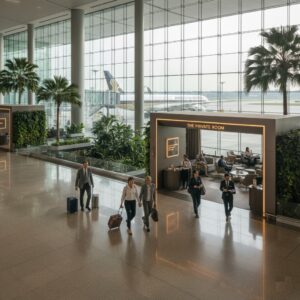Some airlines are bracing themselves for a second summer of travel chaos, as they believe that the industry has not yet emerged from the difficult times it has been facing.
In an effort to mitigate potential issues, several airlines and airports are already tightening their capacity.
Lufthansa announced in February that it would be reducing its 2023 summer schedule by 34,000 flights. Similarly, Amsterdam Schiphol Airport recently stated that it would be capping its passenger numbers at 66,000 per day in May. While the move is part of a broader government strategy to reduce noise pollution around the airport, it could also help alleviate concerns about a repeat of the chaos experienced last summer.
According to Tamur Goudarzi Pour, chief commercial officer of Swiss Air Lines, part of the Lufthansa Group, the industry is facing post-pandemic consumer anxiety that “something will go wrong”.
Otto Gergye, advisor to the chairman and CEO of Thai Airways, insists that “technology has not kept up as much as we all talk about it.”
Even though legacy technology issues have been widely discussed, and many airlines aim to transition to a modern retailing world, some carriers are anticipating significant short-term challenges ahead.
Goudarzi Pour said: “We first have to manage the basics of operations for next summer. Some things are definitely future vision, but, short-term, it’s about getting the basics right, which we can do with plasters around the system.”
The expectation is that 2023 will be better than 2022; however, according to some industry insiders, ensuring schedule reliability and securing adequate staff for the summer are critical factors for success. Additionally, the potential impact of air traffic control (ATC) issues is also a concern.
“In Central Europe, most routes will be affected, so how do you mitigate around punctuality. One third of all delays are due to ATC currently. These are short-term things. Then, we work on those digital servicing elements we can fix in the short-term. For example, rebooking, refund functionality that works, either a chatbot or your phone lines that have fixed answering times and that you have arranged all the partnering for irregular re-accommodation when it happens. These are must-haves for the summer. We are not out of the woods yet.”
Goudarzi Pour has also acknowledged the importance of revamping core systems, a challenge he has previously discussed.
According to Goudarzi Pour, relying solely on shiny new applications will not address the core issue of outdated technology from the 1960s. He suggests that the industry needs to revamp its methods to adapt to the digital age.
The aviation industry, though, has been relying on technology initiatives such as biometrics and baggage handling, as well as increasing staffing levels, in the hope of avoiding a recurrence of last year’s problems.
















More Stories
Bulgaria’s Tourism Triumph Record 2025 Powered by Neighbors
Poland’s High-Tech Border Revolution: EES Ushers in New Era
Singapore Airlines Soars: Premium Boom Fuels 2026 Travel Surge